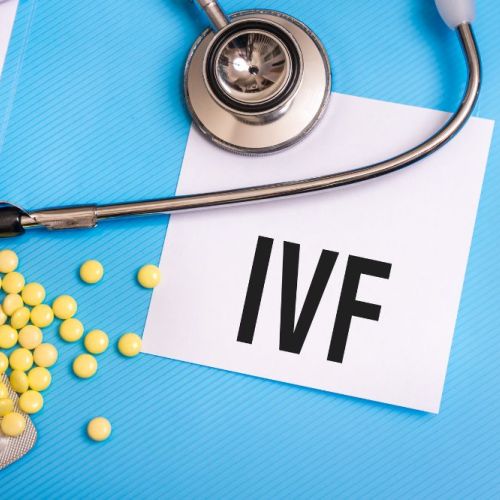How Being Severely Underweight or Overweight Affects Fertility

If you’re thinking about getting pregnant, it’s a good idea to achieve a healthy weight first. Being severely overweight or underweight affects your ability to conceive and can cause complications during your pregnancy.
While women of all sizes can get pregnant, achieving a healthy weight increases your chances of conceiving and of having a healthy pregnancy and thriving baby.
At California Center for Reproductive Health, our fertility specialists, Drs. Eliran Mor and Irene Woo, often recommend you take steps to reach a healthy weight if you’re struggling with infertility. Here’s why.
Being underweight can affect your cycle
When you have a body mass index (BMI) of 18.5 or less, it’s an indication that you’re underweight. A BMI of 17.5 or less may be a sign of an eating disorder, which should definitely be addressed prior to conception.
When your body senses that you’re too thin, it may stop making the female hormone estrogen. Your periods become irregular or disappear altogether, a sign that you’re not ovulating (releasing an egg every month). Your body senses that you may not be healthy enough to support a developing baby in the womb.
If you don’t ovulate, there’s no egg to be fertilized and pregnancy can’t occur.
Being overweight also affects ovulation
Being overweight or obese may also interfere with ovulation. Fat cells produce estrogen, the same hormone produced by your ovaries. When you have too much natural estrogen, your body reacts in the same way as it does when you take larger doses of the hormone in birth control, like the pill or Depo-Provera® injections. Too much estrogen suppresses ovulation.
Overproduction of natural estrogen from fat cells can also fool your body into thinking you’re already pregnant. As a result, you don’t ovulate and you have irregular or absent periods.
Extra weight can also interfere with fertility treatments, including in vitro fertilization. If you want to maximize your chances of getting pregnant with assisted reproductive technology (ART), we may recommend you work toward a healthy weight first.
What if I have polycystic ovary syndrome?
About 10% of women have polycystic ovary syndrome (PCOS). This hormonal and metabolic condition can cause you to gain weight or have trouble losing excess weight. PCOS can affect your fertility by suppressing ovulation.
If you have PCOS, we can work with you to help you achieve a healthier weight and provide treatments that can help you get pregnant. You may benefit from fertility medications and in vitro fertilization.
Can weight affect male fertility?
Men who are obese may experience changes in their testosterone levels that affect their ability to produce viable sperm. Low sperm counts and sperm with low motility occur more often in men who are overweight or obese than in men who are at healthy weights.
What should I do?
Before assuming it’s your weight that’s causing your infertility, make an appointment at our office to have all relevant fertility factors considered. Your age, genetic history, and gynecological health, as well as your partner’s health, all play a role in your ability to get pregnant.
We can help support you in losing or gaining weight in a healthy way if we feel that can help your fertility journey. Achieving a healthy weight with a nutritious diet, exercise, and stress reduction is always a good way to promote better health, too.
Our fertility specialists at California Center for Reproductive Health understand how frustrating and devastating infertility can be. We do everything possible to support your efforts to overcome infertility and experience a healthy pregnancy. Call today for an appointment or use the online tool to schedule.
Eliran Mor, MD
Reproductive Endocrinologist located in Encino, Santa Monica, Valencia & West Hollywood, CA
FAQ
What does a reproductive endocrinologist and infertility specialist do?
Reproductive endocrinology and Infertility is a sub-specialty of Obstetrics and Gynecology. In addition to managing medical and surgical treatment of disorders of the female reproductive tract, reproductive endocrinologist and infertility (REI) specialists undergo additional years of training to provide fertility treatments using assisted reproductive technology (ART) such as in vitro fertilization.
Reproductive endocrinologists receive board certification by the American Board of Obstetrics and Gynecology in both Obstetrics and Gynecology and Reproductive Endocrinology and Infertility.
When should I see an REI specialist?
In general, patients should consider consulting with an REI specialist after one year of trying unsuccessfully to achieve pregnancy. The chance of conceiving every month is around 20%, therefore after a full year of trying approximately 15% of couples will still not have achieved a pregnancy.
However, if a woman is over the age of 35 it would be reasonable to see a fertility specialist earlier, typically after 6 months of trying.
Other candidates to seek earlier treatment are women who have irregular menses, endometriosis, fibroids, polycystic ovary syndrome (PCOS), women who have had 2 or more miscarriages, or problems with the fallopian tubes (prior ectopic pregnancy).
What are the reasons we are having trouble conceiving?
Approximately 1/3 of the time cause for infertility is a female factor, 1/3 of the time a male factor, and the remaining 1/3 a couples’ factor.
At CCRH, we emphasize the importance of establishing a correct diagnosis. Both partners undergo a comprehensive evaluation including a medical history and physical exam.
Furthremore, the woman’s ovarian reserve is assessed with a pelvic ultrasound and a hormonal profile. A hysterosalpingogram (HSG) will confirm fallopian tube patency and the uterine cavity is free of intracavitary lesions. A semen analysis is also obtained to evaluate for concentration, motility, and morphology of the sperm.
Additional work up is then individualized to direct the best possible treatment option for each couple.
What is IVF? What is the process like?
In vitro fertilization (IVF) is the process that involves fertilization of an egg outside of a woman’s body.
The process starts with fertility drugs prescribed to help stimulate egg development. In your natural cycle, your body is only able to grow one dominant egg, but with stimulation medication we can recruit multiple eggs to continue to grow. After about 8-10 days of stimulation, the eggs are surgically retrieved and then fertilized with sperm in a specialized laboratory. Fertilized eggs are then cultured under a strictly controlled environment within specialized incubators in the IVF laboratory for 3-5 days while they develop as embryos. Finally, embryos (or an embryo) are transferred into the uterine cavity for implantation.
Should I have IVF?
Before deciding if IVF is the right choice, it’s important to sit down with an REI specialist to discuss available treatment options. For some people, other methods such as fertility drugs, intrauterine insemination (IUI) may be the best first choice treatment. At CCRH, we believe each individual couple is unique and not everyone needs IVF.
Is the IVF procedure painful?
While not painful, the fertility medications may some side effects including headaches, hot flashes, mood swings, and bloating. The injection sites may also bruise.
Will IVF guarantee a baby?
Unfortunately, no. Many people think once they start IVF it’s a matter of time that they will be pregnant and have a baby. But according to national statistics per the Society of Assisted Reproduction (SART), on average 40% of assisted reproduction cycles achieve live births in women under age 35. The chances of success then continue to decrease with advancing age.
At CCRH, we employ only evidence-based interventions to ensure patient safety and optimal outcome. While we cannot guarantee a baby, we guarantee that you will receive the best, most advanced, personalized care to help you maximize your chance of a baby.
What is the success rate for IVF?
The average IVF success rate (success measured in live birth rate) using one’s own eggs begins to drop around age 35 and then rapidly after age 40. This is due to the decline in egg quantity and egg quality as a woman ages.
Our clinic’s success rate consistently beats the national average year after year.
Do insurance plans cover infertility treatment? How much does IVF cost?
Individual insurance plans often do not have any coverage for infertility treatments. If you have a group plan, you can call members services to see if they have coverage for infertility (including consultation/workup and IVF).
After your consultation with our REI specialist, one of our dedicated account managers with sit with you to go over the cost of treatment.




